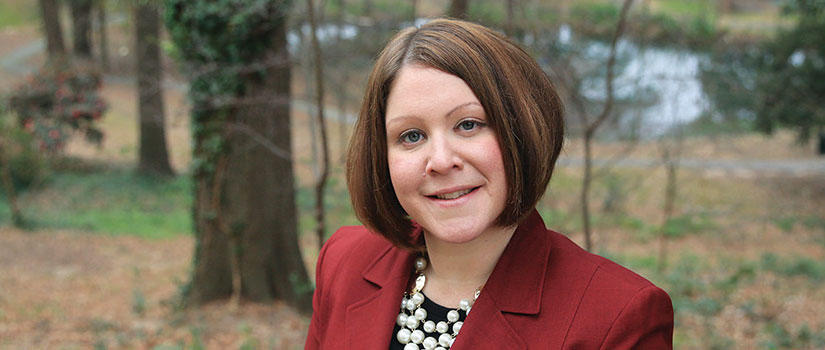A conversation with Hilary Lichterman, associate director of residence life, University Housing
Residential curriculum is an emergent approach to residential education, an exciting new evolution where we tailor what we're doing in the co-curricular setting to better align with the within-the-classroom approach.
The American College Personnel Association’s “10 Essential Elements of a Residential Curriculum” – created by Kathleen Kerr and other colleagues in the field – illustrate what I call a “pure residential curriculum.” The “10 Essential Elements” encourage us to bring to life an institution’s values and to design learning outcomes that fit that particular institution.
What we have here at the University of South Carolina should be true to our mission, our priorities and our initiatives at the institutional level and then translated within the residential sphere. It also looks at the fundamental question, what should students learn by living in a residence hall, regardless of the hall that they’re in? Students’ experiences across halls should be very similar in many regards.
At UofSC we’ve looked at the institutional mission and values, and a team led by Kirsten Kennedy, our executive director, developed what we call the A-frame, which stands for academic progress, awareness of self and awareness of others. Within each of those areas we link and align to the Carolina Core general education requirements and have outlined those as our overarching outcomes.
We don’t individually grade our students, but we use a rubric to guide our aggregate approach, our lesson plans. We sequence our topics and learning and map and inventory where we’re hitting. When we dig into our rubric we talk about our different strategies – how do we actually execute this and how do we separate this from previous approaches to residential education? How can we have our greatest impact and what are those different approaches?
We start getting more information about our students, and that information is logged, and the themes are used to help plan. If we know that 30 residents in the community have talked about time management being tricky, we can steer our energies toward that to make the educational moments more meaningful for our students.
We have other strategies, including community gatherings and passive education, and everything has a rhythm and a rhyme and a sequence. Right now we’re primarily housing first-year students, but that won’t always be the case. So how do we begin to look at our rubric and our learning goals knowing that in the future we’ll be welcoming more upper-class students? What should our expectations and our priorities be for their learning?
One of the great things I can say about a residential curriculum is that you’re never done. It’s always evolving. We’re constantly looking at our students to revise our approach.
Lichterman is a faculty member of ACPA’s Residential Curriculum Institute and has presented on residential curriculum at a number of conferences, including the Association of College and University Housing Officers – International Conference and Exposition. Her dissertation research focuses on an organizational perspective on adopting the residential curriculum approach.
